- Home
- Nora Roberts
Tribute Page 3
Tribute Read online
Page 3
That hammer was probably damn heavy. Girl had some muscle on her.
“Cilla McGowan,” he said to Spock as the dog raced after invisible cats in the yard, “moved in right across the road.” Wasn’t that a kick in the ass? Ford recalled his own sister had all but worshipped Katie Lawrence, the kid Cilla had played for five? six? seven years? Who the hell knew? He remembered Alice carting around an Our Family lunch box, playing with her Katie doll and wearing her Katie backpack proudly.
As Alice tended to hoard everything, he suspected she still had the Our Family and Katie memorabilia somewhere up in Ohio, where she lived now. He was going to make a point of e-mailing her and rubbing her face in who he’d just copped as a neighbor.
The long-running show had been too tame for him back in the day. He’d preferred the action of The Transformers, and the fantasy of Knight Rider. He remembered after a bitter battle with Alice over God knew what, he’d exacted his revenge by stripping Katie naked, gagging her with duct tape and tying her to a tree, guarded by his army of Storm Troopers.
He’d caught hell for it, but it had been worth it.
It seemed a bit twisted to stand here now, watching the adult, live-action version of Katie switch sledgehammer for some sort of pry bar. And imagining her naked.
He had a damn good imagination.
Four years, Ford thought, since he’d moved in across the road. He’d seen two caretakers come and go, the second in just under six months. And not once had he seen any of Janet Hardy’s family before today. Subtracting the almost two years he’d lived in New York, he’d lived in the area the whole of his life, and seen none of them before today. Heard of Mr. McGowan’s girl Cilla passing through a time or two, but he’d never caught a glimpse.
Now she was talking to plumbers, tearing down porches and . . . He paused when he recognized the black pickup turning into the drive across the road as belonging to his friend Matt Brewster, a local carpenter. When a second truck pulled in barely thirty seconds later, Ford decided to get himself another cup of coffee, maybe a bowl of cereal, and take his breakfast out on the veranda so he could watch the goings-on.
He should be working, Ford told himself an hour later. Vacation was over and done, and he had a deadline. But it was so damn interesting out here. Another truck joined the first two, and he recognized that one as well. Brian Morrow, former top jock and wide receiver, and the third in the pretty much lifelong triumvirate of Matt, Ford and Brian, ran his own landscaping company. From his perch, Ford watched Cilla make the circuit of the grounds with Brian, watched her gesture, then consult the thick notebook she carried.
He had to admire the way she moved. Must be all that leg, he supposed, that had her eating up the ground so efficiently while appearing to take her time. All that energy so tightly packed in that willowy frame, the glacier blue eyes and china-doll skin masking the muscle it took to . . .
“Whoa, wait a minute.” He sat up straighter, narrowed his eyes and pictured her with the hammer hefted on her shoulder again. “Shorter handle,” he muttered. “Two-sided head. Yeah, yeah. Looks like I am working.”
He went inside, grabbed a sketch pad and pencils and, inspired, dug out his binoculars. Back on the veranda, he focused on Cilla through the glasses, studying the shape of her face, the line of her jaw, her build. She had a fascinating, sexy mouth, he mused, with that deep middle dip in the top lip.
As he began the first sketch, he rolled around scenarios, dismissing them almost as soon as he considered.
It would come to him, he thought. The concept often came from the sketches. He saw her . . . Diane, Maggie, Nadine. No, no, no. Cass. Simple, a little androgynous. Cass Murphy. Cass Murphy. Intelligent, intense, solitary, even lonely. Attractive. He looked through the glasses again. “Oh yeah, attractive.”
The rough clothes didn’t disguise that, but they played it down. He continued to sketch, full body, close-up face, profile. Then stopped to tap his pencil and consider. Glasses might be a cliché, but they were shorthand for smarts. And always a good mask for the alter ego.
He sketched them on, trying out simple, dark frames, rectangular lenses. “There you are, Cass. Or should I say, Dr. Murphy?”
He flipped a page over, began again. Safari shirt, khakis, boots, wide-brimmed hat. Out of the lab or classroom, into the field. His lips curved as he flipped the page again, and his mind raced as he sketched out who and what his newly minted Cass would become. The leather, the breastplate—and the very nice pair rising over it. Silver armbands, long bare legs, the wild swirl of hair with the circlet of rank crowning the head. Jeweled belt? he wondered. Maybe. The ancient weapon—double-headed hammer. Gleaming silver when gripped by the hand of the blood descendant of the warrior goddess . . .
And yeah, he needed a name for her.
Roman? Greek? Viking? Celt?
Celtic. It fit.
He held up the pad, and found himself grinning at the image. “Hello, gorgeous. We’re going to kick some major ass together.”
He glanced back across the road. The trucks were gone now, and while Cilla was nowhere in sight, the front door of the farmhouse stood open.
“Thanks, neighbor,” Ford said, and, rising, went inside to call his agent.
SURREAL WAS the best way to describe Cilla’s view on finding herself sitting on the pretty patio of her father’s tidy brick colonial, sipping iced sun tea fussily served by her stepmother. The scene simply didn’t fit in with any previous phase of her life. As a child, her visits east had been few and far between. Work trumped visitations, at least in her mother’s game.
He’d come to her now and then, Cilla remembered. And taken her to the zoo or to Disneyland. But at least during the heyday of her series, there’d always been paparazzi, or kids swarming her, and their parents snapping photos. Work trumps Fantasyland, Cilla thought, whether you wanted it to or not.
Then, of course, her father and Patty had their own daughter, Angie, their own home, their own lives on the other side of the country. Which, Cilla mused, equated to the other side of the world.
She’d never fit into that world.
Isn’t that what her father had tried to tell her? A long way, and not just the miles.
“It’s nice out here,” Cilla said, groping.
“Our favorite sitting spot,” Patty answered with a smile that tried too hard. “It’s a little chilly yet, I know.”
“It feels good.” Cilla racked her brain. What did she say to this sweet, motherly woman with her pleasant face, dark bob of hair and nervous eyes? “I, ah, bet the gardens will be great in a week or two, when everything starts to pop.”
She scanned the bed, the shrubs and vines, the trim swath of lawn that would fill with pockets of shade when the red maple and weeping cherry leafed out. “You’ve put a lot of work into it.”
“Oh, I putter.” Patty flicked her fingers over her short, dark bob, twisted the little silver hoop in her ear. “It’s Gavin who’s the gardener in the house.”
“Oh.” Cilla shifted her gaze to her father. “Really?”
“I like playing in the dirt. Guess I never grew out of it.”
“His grandfather was a farmer.” Patty sent Gavin a quick beam. “So it came down through the blood.”
Had she known that? Why hadn’t she known that? “Here, in Virginia?”
Patty’s eyes widened in surprise, then slid toward Gavin. “Ummm.”
“I thought you knew—your grandmother bought my grandfather’s farm.”
“I—What? The Little Farm? That was yours?”
“It was never mine, sweetie. My grandfather sold it when I was just a boy. I do remember chasing chickens there, and getting scolded for it. My father didn’t want to farm, and his brothers and sisters—those living at the time—had mostly scattered off. So, well, he sold it. Janet was here, filming on location. Barn Dance.”
“I know that part of the story. She fell in love with the farm they used and bought it on the spot.”
“More or le
ss on the spot,” Gavin said with a smile. “And Grandpa bought himself a Winnebago—I swear—and he and Grandma hit the road. Traveled all over hell and back again for the next six, seven years, till she had a stroke.”
“It was McGowan land.”
“Still is.” Still smiling, Gavin sipped his tea. “Isn’t it?”
“I think it’s a lovely kind of circle.” Patty reached out, patted her hand over Cilla’s. “I remember how the lights would shine in that house when Janet Hardy was there. And how in the summer, if you drove by with the windows open, you could hear music, and maybe see women in beautiful clothes, and the most handsome men. Now and then, she’d come into town, or just drive around in her convertible. A picture she made.”
Patty picked up the pitcher again, as if she had to keep her hands busy. “She stopped by our house once, when we had a litter of puppies for sale. Five dollars. Our collie had herself a liaison with a traveling salesman of indeterminate origin. She bought a puppy from us. Sat right down on the ground and let those pups jump and crawl all over her. And laughed and laughed. She had such a wonderful laugh.
“I’m sorry. I’m going on, aren’t I?”
“No. I didn’t know any of this. I don’t know nearly enough. Was that the dog that . . .”
“It was. She called him Hero. Old Fred Bates found him wandering the road and loaded him in his pickup, took him back. He was the one who found her that morning. It was a sad day. But now you’re here.” Again, Patty laid a hand over Cilla’s. “There’ll be lights and music again.”
“She bought the dog from you,” Cilla murmured, “and the farm from your grandfather.” She looked at Gavin. “I guess it’s another circle. Maybe you could help me with the gardens.”
“I’d like that.”
“I hired a landscaper today, but I have to decide what I want put in. I’ve got a book on gardening in this zone, but I could use some direction.”
“It’s a deal. And I’ve got a couple of gardening books that might give you more ideas.”
“A couple?”
Gavin grinned at his wife’s rolling eyes. “A few more than a couple. Who’d you hire?”
“Morrow? Brian Morrow?”
“Good choice. He does good work, and he’s reliable. Was a football star back in high school, and never pushed himself to be more than a dead average student. But he’s built up a good business and reputation for himself.”
“So I hear. I met another of your former students today. Ford Sawyer.”
“Of course,” Patty put in. “He lives right across the road.”
“Clever boy, always was.” Gavin nodded over his tea. “Tended to daydream, but if you engaged his mind, he’d use it. He’s done well for himself, too.”
“Has he? How?”
“He writes graphic novels. Illustrates them, too, which isn’t usual, I’m told. The Seeker? That’s his. It’s interesting work.”
“The Seeker. Super-crime-fighter sort of thing?”
“Along those lines. A down-on-his-luck private investigator stumbles across a madman’s plot to destroy the world’s great art through the use of a molecular scrambler that renders them invisible. His hopes to stop them—and secure his own fame and fortune—result in the murder of his devoted girlfriend. He himself is left for dead, but he’s also exposed to the scrambler.”
“And is imbued with the power of invisibility,” Cilla finished. “I’ve heard of this. A couple of the guys who worked on my flips were into graphic novels. God knows Steve was,” she said, referring to her ex-husband. “They’d argue the Seeker versus the Dark Knight or X-Men as compared to the Fantastic Four half the day. When I said something about grown men and comic books, I got the fish eye.”
“Gavin enjoys them. Well, Ford’s in particular.”
“Do you really?” The image of the quiet-natured high school teacher poring over superhero comics amused her. “Because he’s a former student?”
“That’s certainly a factor. And the boy tells a good, meaty story centered on a complicated character who seeks redemption by seeking out evil. He attempted to do the right thing, but for all the wrong reasons. To stop a madman but for his own personal gain. And that single act cost the life of the woman who loved him, and whom he’d treated carelessly. His power of invisibility becomes a metaphor—he becomes a hero but will never be seen. Interesting work.”
“He’s single,” Patty added, and made Gavin laugh. “Well, I’m only mentioning it because he lives right across the road, and Cilla’s going to be alone at the farm. She might want some company now and again.”
Head that one off at the pass, Cilla thought. “Actually, I’m going to be spending my days on the rehab, and my evenings plotting out the phases of the job. I’ll be too busy for much company for a while. In fact, I should get back to it. I’ve got a full day scheduled tomorrow.”
“Oh, but can’t you stay for dinner?” Patty protested. “Let’s get a nice home-cooked meal into you before you go. I’ve got lasagna all made up and ready to pop into the oven. It won’t take long.”
“That sounds great.” Cilla realized it did just that. “I’d love to stay for dinner.”
“You sit right here, have another glass of tea with your father.”
Cilla watched while Patty popped up, then bustled across the patio and into the house. “Should I go help her?”
“She likes to fuss with meals. It relaxes her, the way gardening does me. She’ll like it better if you sit out here and let her.”
“I make her nervous.”
“A little. It’ll pass. I can tell you she’d have been disappointed if you’d said no to dinner. Lasagna’s Patty’s specialty. She makes the sauce from my tomato harvest every summer and cans it.”
“You’re kidding.”
His lips quirked at her quick and absolute surprise. “It’s a different world, sweetie.”
“I’ll say.”
In this world, Cilla discovered, people ate homemade lasagna and apple cobbler, and treated a meal as food rather than a performance. And a guest or family—she thought she fell somewhere in the middle—was given a plate of each covered in tinfoil to take home for leftovers. If the guest/family was driving, she was offered a single glass of wine with dinner, then plied with coffee afterward.
Cilla glanced at her watch, smiled. And could be walking in her own door by eight.
After stowing the two plates in her trusty cooler, Cilla planted her hands on her hips and looked around. The bare bulbs cast harsh light and hard shadows, spotlighted cracked plaster and scarred floorboards. Poor old girl, she thought. You’re in desperate need of a face-lift.
She picked up her flashlight, switched it on before turning off the overhead bulbs and, using it to guide her way, started toward the steps.
A glance out the front window showed her the lights sparkling from homes scattered across the hills and fields. Other people had finished their home-cooked meals, she supposed, and were settled down to watch TV or finish up a little paperwork. Maybe kids were being tucked into bed, or being told to settle down and finish their homework.
She doubted any of them sat reading changes in the script for tomorrow’s shoot, or yawned through another running of her lines. Foolish to envy them, Cilla thought, for having what she never had.
Standing there, she picked out the lights in Ford’s house.
Was he crafting the Seeker’s next adventure? Maybe chowing down on frozen pizza, what she imagined the bachelor’s version of a home-cooked meal might be? And what was a comic book writer—pardon me, graphic novelist—doing living in a beautifully restored old Victorian in rural Virginia?
A single graphic novelist, she remembered with a smirk, with an unquestionably sexy Southern drawl and a lazy gait that edged up toward a swagger. And an odd little dog.
Whatever the reasons were, it was nice to see the lights shining across the road. Close but not too close. Oddly comforted by them, she turned away to continue upstairs, where she intended
to slide into her sleeping bag and work on her plans.
HER CELL PHONE woke her out of a dead sleep, had her eyes flashing open, then slamming shut again against the glare of the light she’d neglected to turn off before dropping off. Cursing, Cilla pried one eye partially open as she slid a hand over the floor for the phone.
What the hell time was it?
Heart pounding, she read the time on the phone—3:28 A.M.—and her mother’s data on the display.
“Crap.” Cilla flipped the phone open. “What’s wrong?”
“Is that any way to answer the phone? You don’t bother to say hello?”
“Hello, Mom. What’s wrong?”

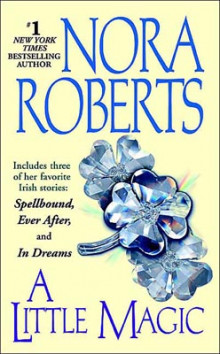 A Little Magic
A Little Magic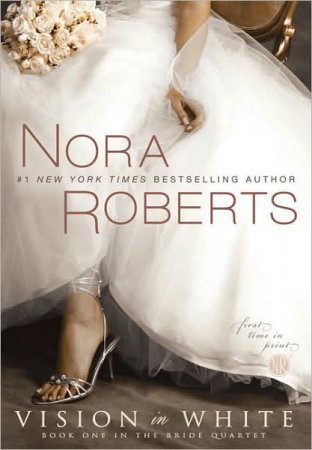 Vision in White
Vision in White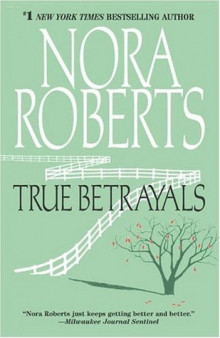 True Betrayals
True Betrayals The Next Always
The Next Always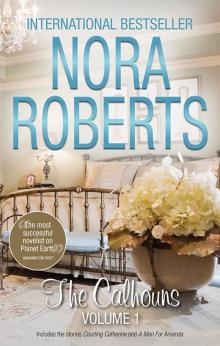 A Man for Amanda
A Man for Amanda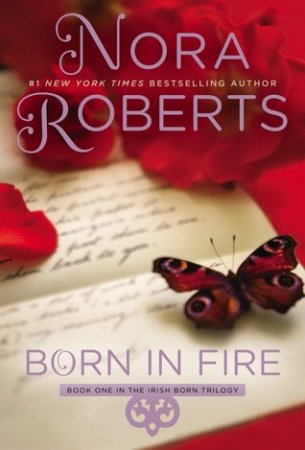 Born in Fire
Born in Fire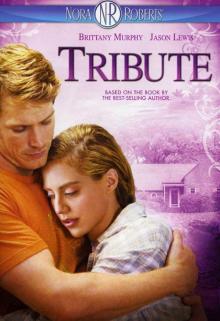 Tribute
Tribute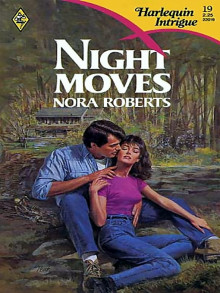 Night Moves
Night Moves Dance Upon the Air
Dance Upon the Air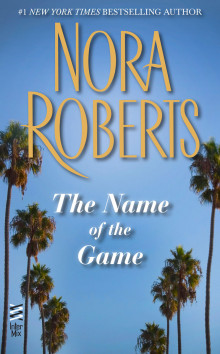 The Name of the Game
The Name of the Game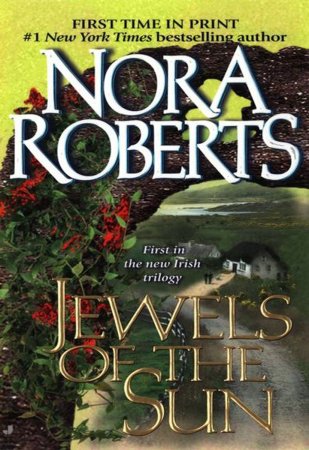 Jewels of the Sun
Jewels of the Sun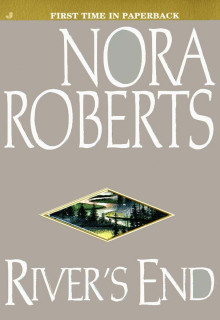 River's End
River's End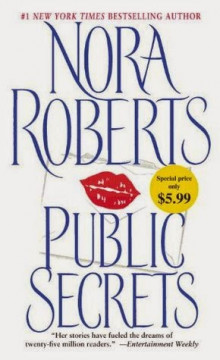 Public Secrets
Public Secrets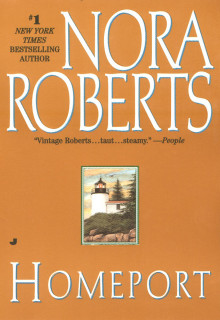 Homeport
Homeport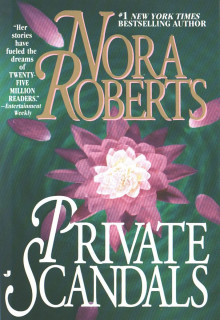 Private Scandals
Private Scandals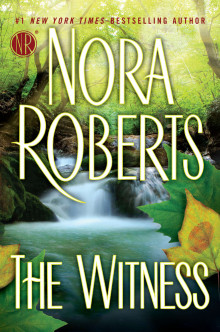 The Witness
The Witness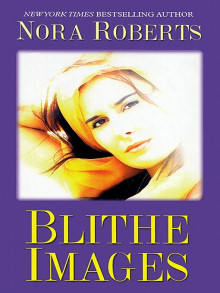 Blithe Images
Blithe Images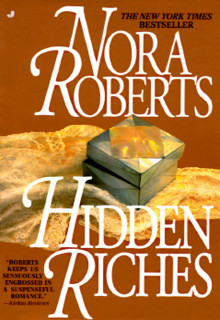 Hidden Riches
Hidden Riches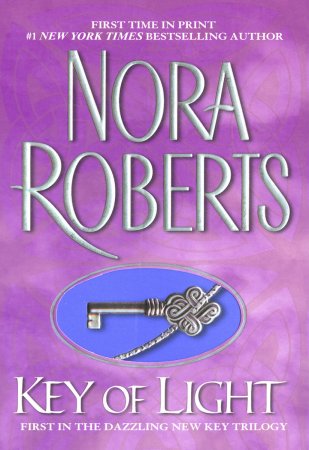 Key of Light
Key of Light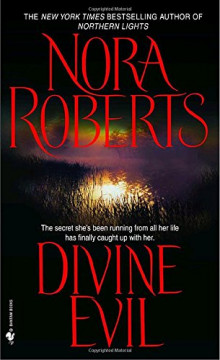 Divine Evil
Divine Evil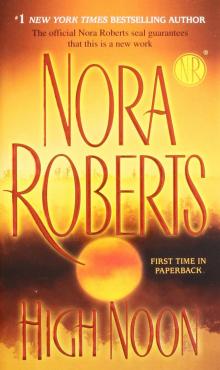 High Noon
High Noon Blue Dahlia
Blue Dahlia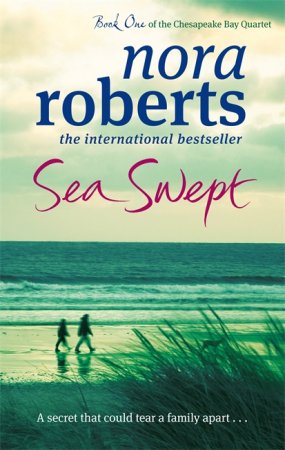 Sea Swept
Sea Swept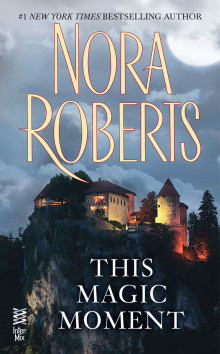 This Magic Moment
This Magic Moment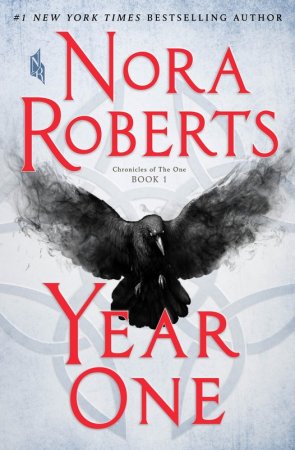 Year One
Year One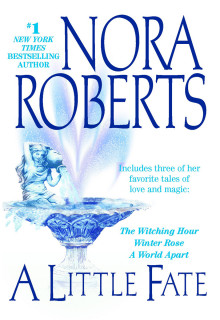 A Little Fate
A Little Fate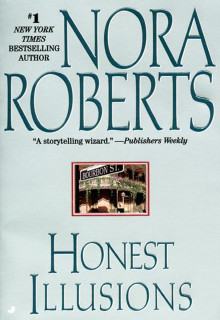 Honest Illusions
Honest Illusions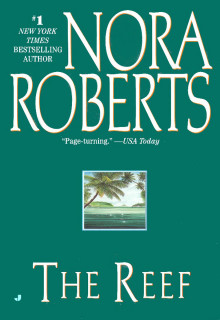 The Reef
The Reef Shelter in Place
Shelter in Place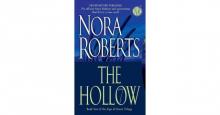 The Hollow
The Hollow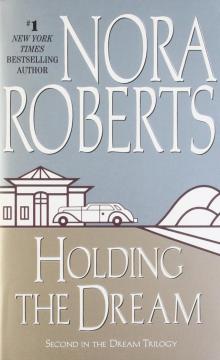 Holding the Dream
Holding the Dream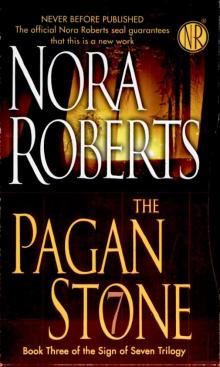 The Pagan Stone
The Pagan Stone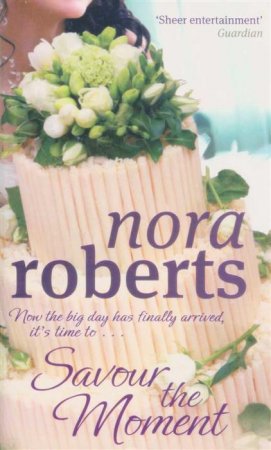 Savour the Moment
Savour the Moment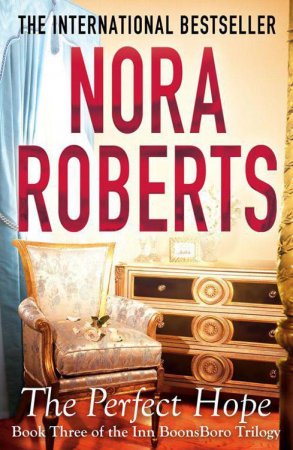 The Perfect Hope
The Perfect Hope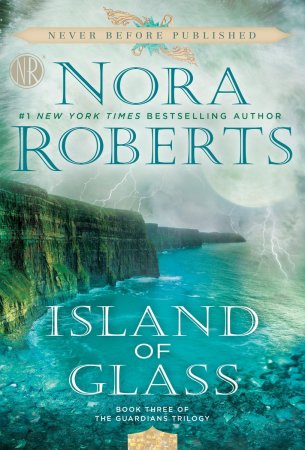 Island of Glass
Island of Glass Happy Ever After
Happy Ever After Bed of Roses
Bed of Roses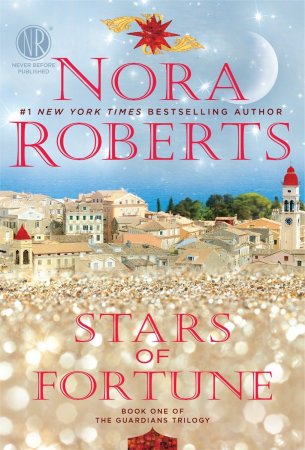 Stars of Fortune
Stars of Fortune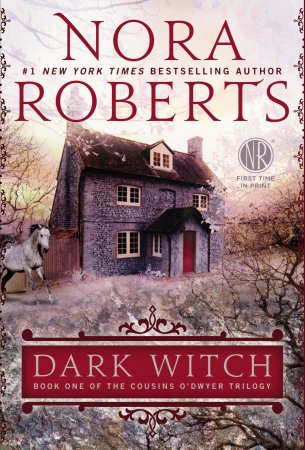 Dark Witch
Dark Witch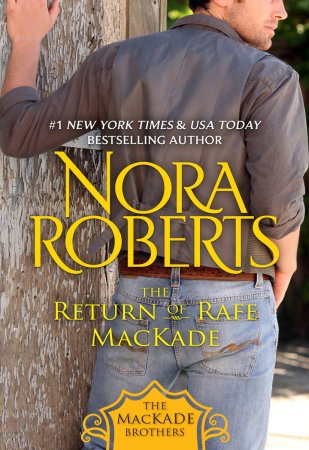 The Return of Rafe MacKade
The Return of Rafe MacKade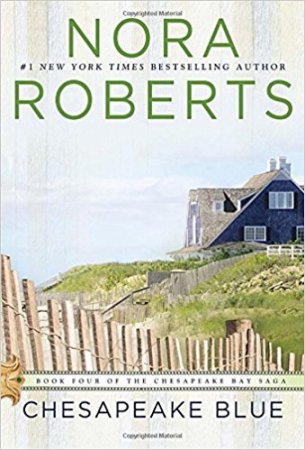 Chesapeake Blue
Chesapeake Blue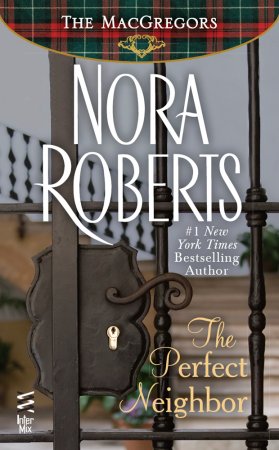 The Perfect Neighbor
The Perfect Neighbor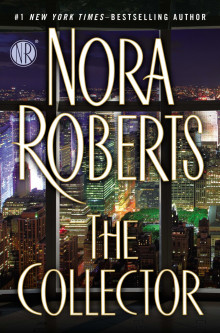 The Collector
The Collector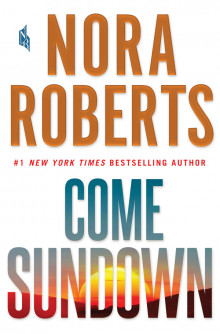 Come Sundown
Come Sundown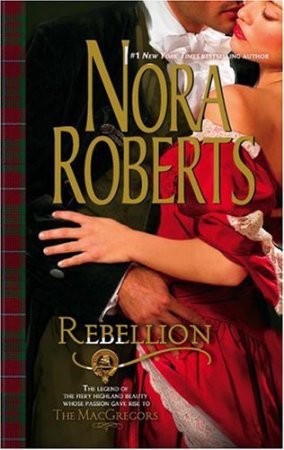 Rebellion
Rebellion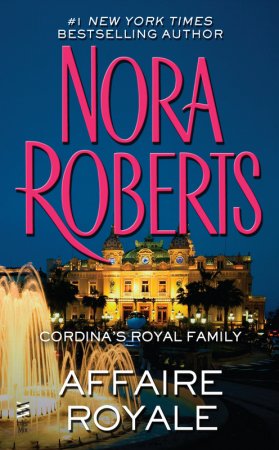 Affaire Royale
Affaire Royale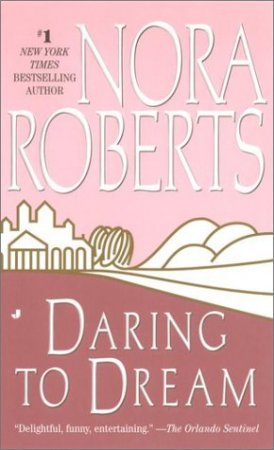 Daring to Dream
Daring to Dream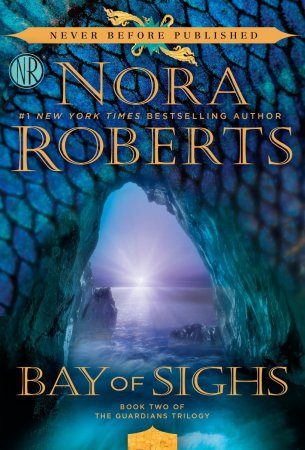 Bay of Sighs
Bay of Sighs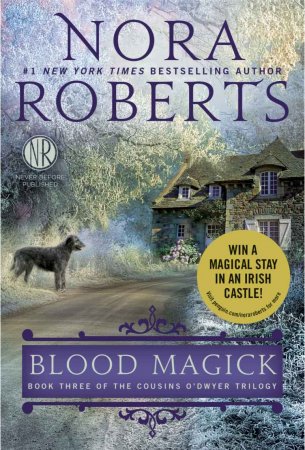 Blood Magick
Blood Magick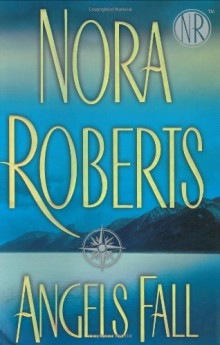 Angels Fall
Angels Fall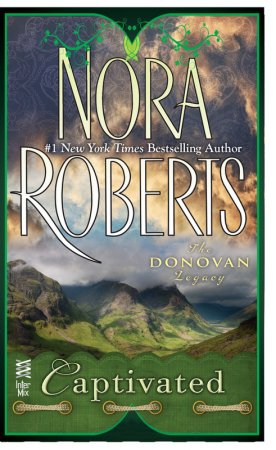 Captivated
Captivated The Last Boyfriend
The Last Boyfriend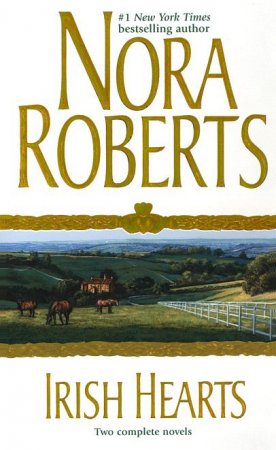 Irish Thoroughbred
Irish Thoroughbred Inner Harbor
Inner Harbor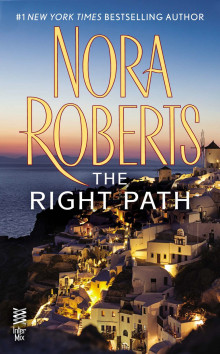 The Right Path
The Right Path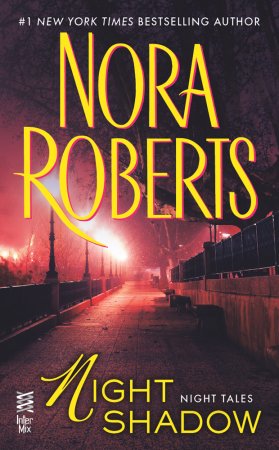 Night Shadow
Night Shadow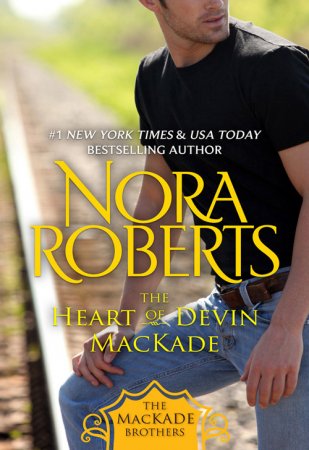 The Heart of Devin MacKade
The Heart of Devin MacKade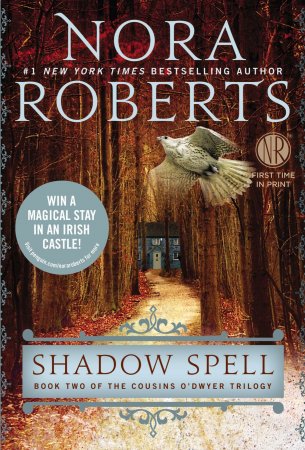 Shadow Spell
Shadow Spell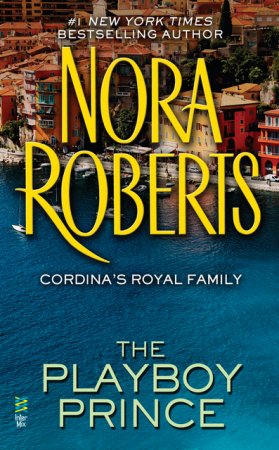 The Playboy Prince
The Playboy Prince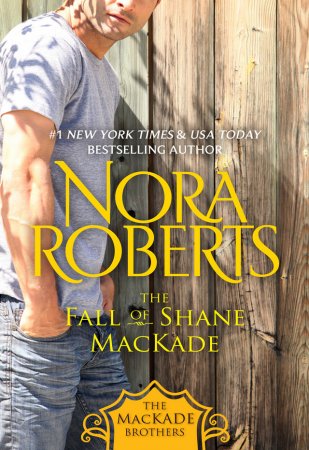 The Fall of Shane MacKade
The Fall of Shane MacKade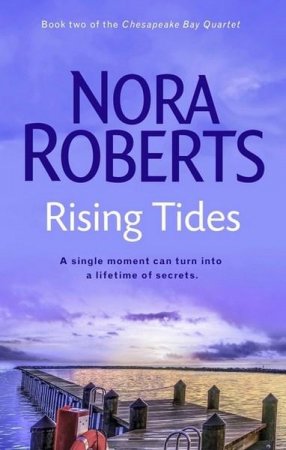 Rising Tides
Rising Tides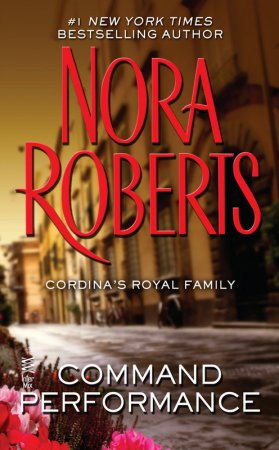 Command Performance
Command Performance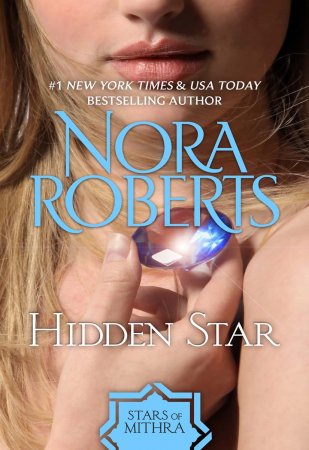 Hidden Star
Hidden Star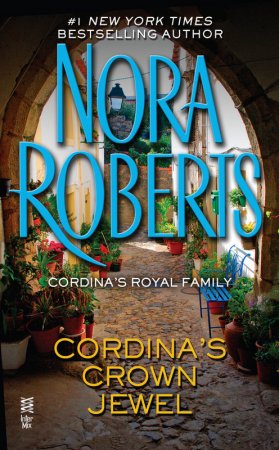 Cordina's Crown Jewel
Cordina's Crown Jewel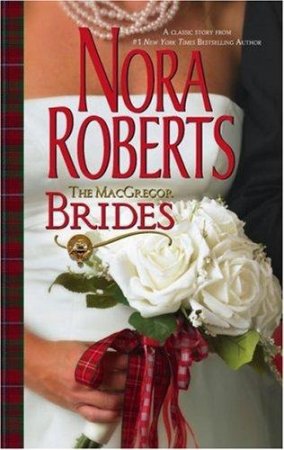 The MacGregor Brides
The MacGregor Brides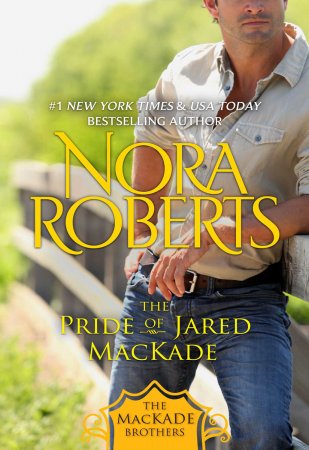 The Pride of Jared MacKade
The Pride of Jared MacKade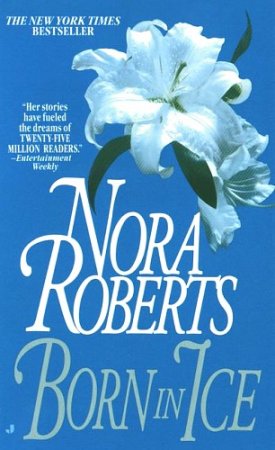 Born in Ice
Born in Ice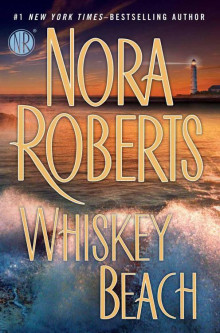 Whiskey Beach
Whiskey Beach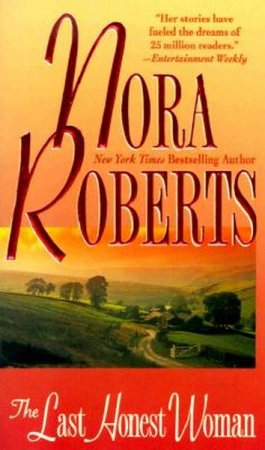 The Last Honest Woman
The Last Honest Woman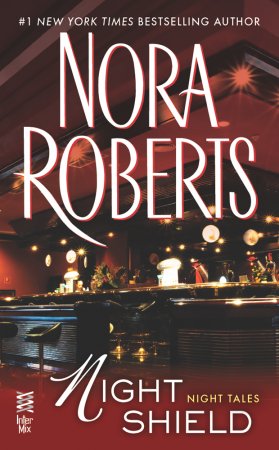 Night Shield
Night Shield Born in Shame
Born in Shame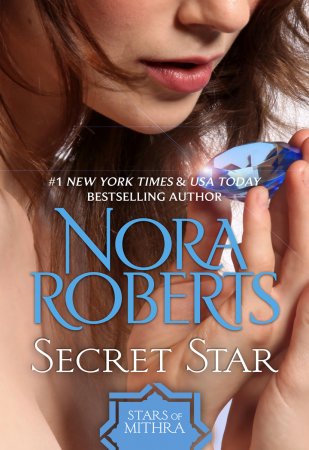 Secret Star
Secret Star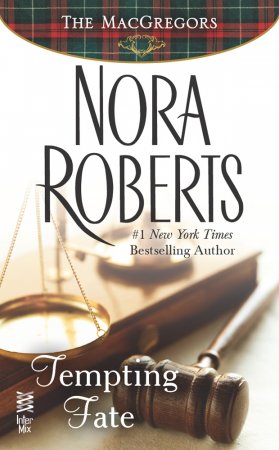 Tempting Fate
Tempting Fate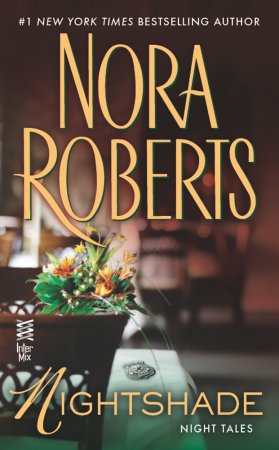 Nightshade
Nightshade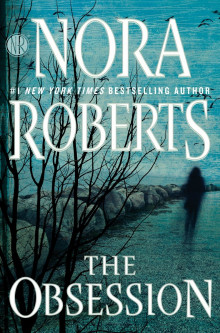 The Obsession
The Obsession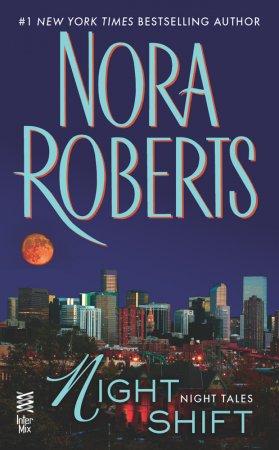 Night Shift
Night Shift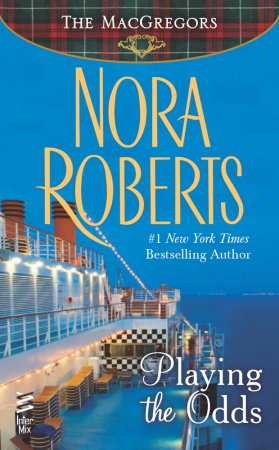 Playing The Odds
Playing The Odds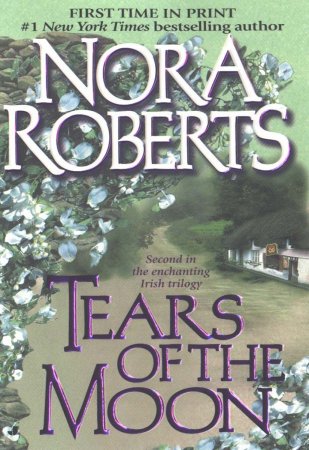 Tears of the Moon
Tears of the Moon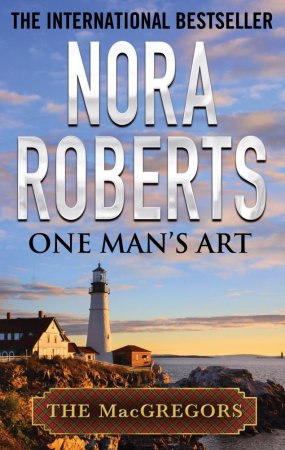 One Man's Art
One Man's Art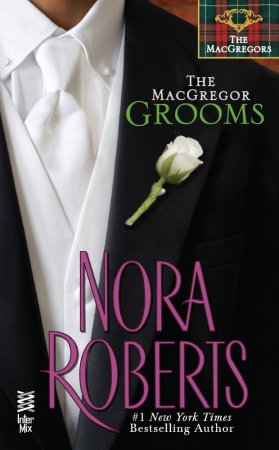 The MacGregor Groom
The MacGregor Groom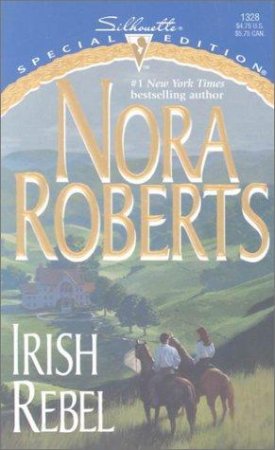 Irish Rebel
Irish Rebel Morrigan's Cross
Morrigan's Cross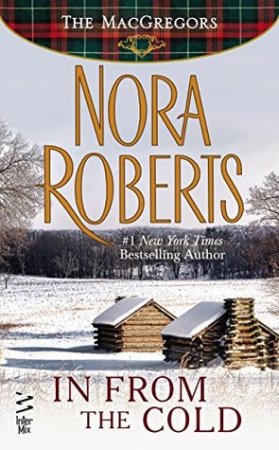 In From The Cold
In From The Cold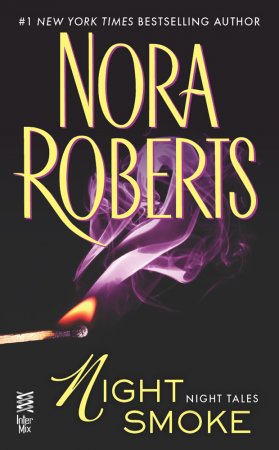 Night Smoke
Night Smoke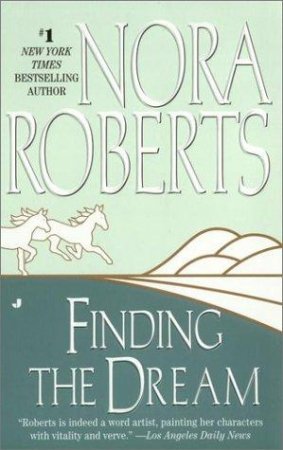 Finding the Dream
Finding the Dream Red Lily
Red Lily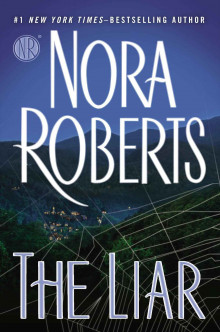 The Liar
The Liar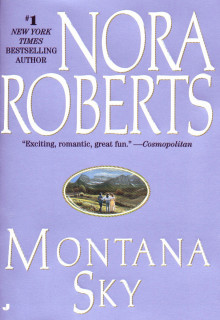 Montana Sky
Montana Sky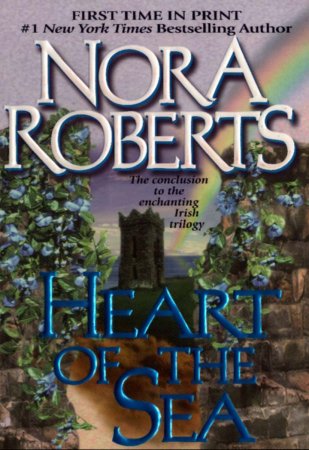 Heart of the Sea
Heart of the Sea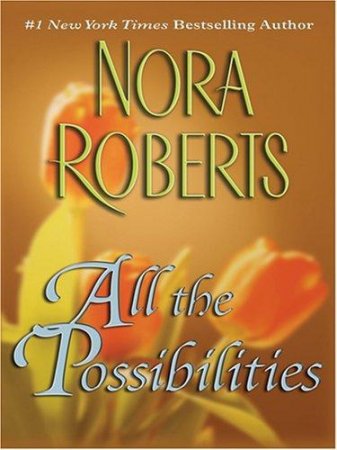 All The Possibilities
All The Possibilities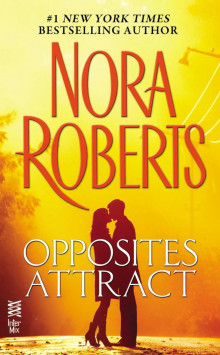 Opposites Attract
Opposites Attract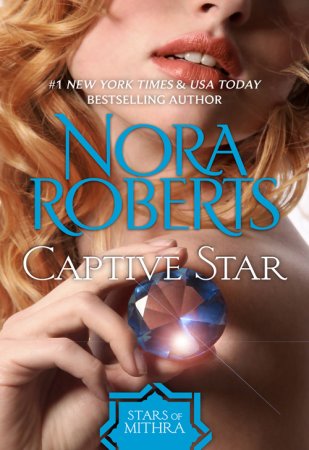 Captive Star
Captive Star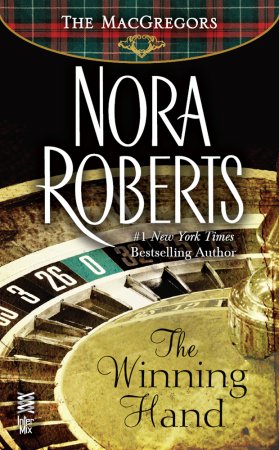 The Winning Hand
The Winning Hand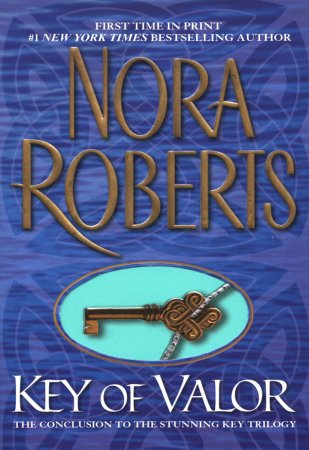 Key of Valor
Key of Valor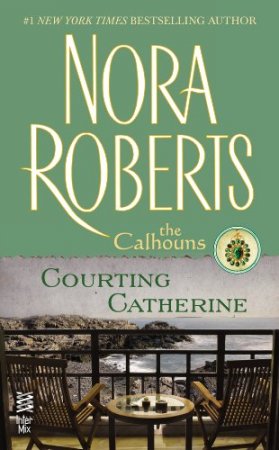 Courting Catherine
Courting Catherine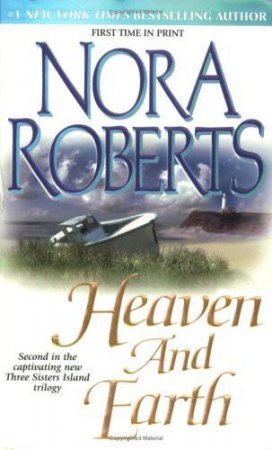 Heaven and Earth
Heaven and Earth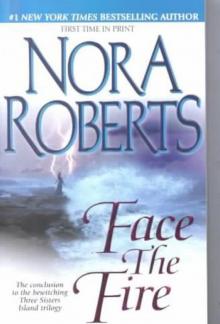 Face the Fire
Face the Fire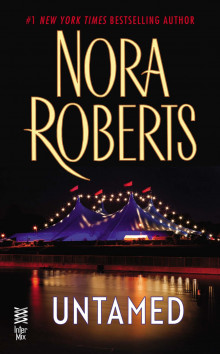 Untamed
Untamed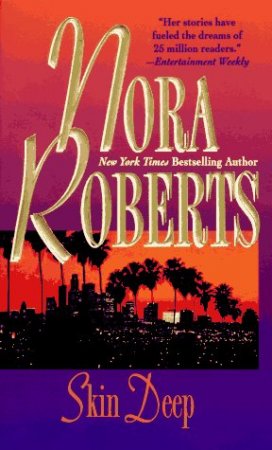 Skin Deep
Skin Deep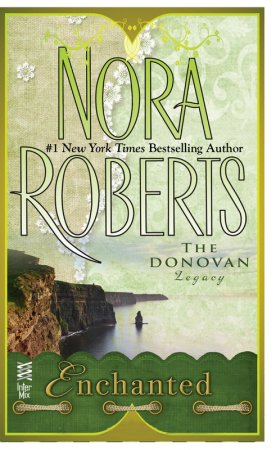 Enchanted
Enchanted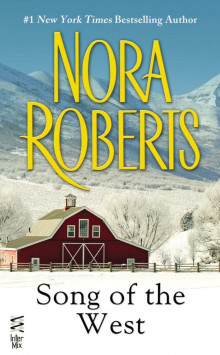 Song of the West
Song of the West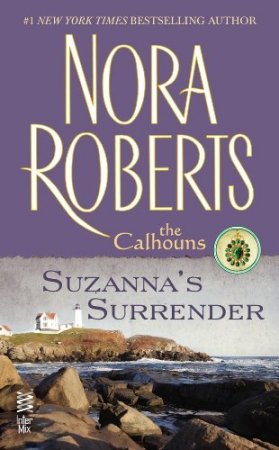 Suzanna's Surrender
Suzanna's Surrender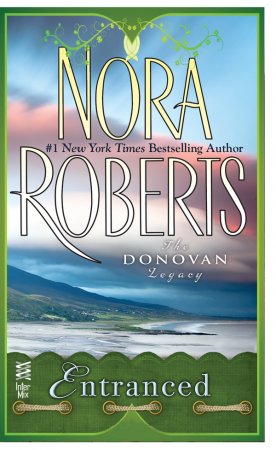 Entranced
Entranced Dance of the Gods
Dance of the Gods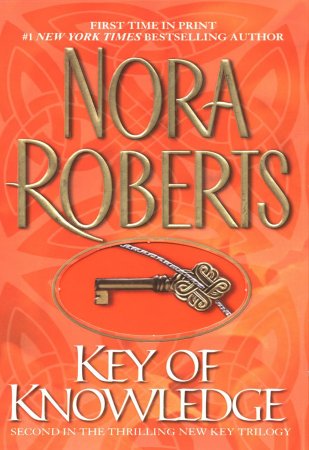 Key of Knowledge
Key of Knowledge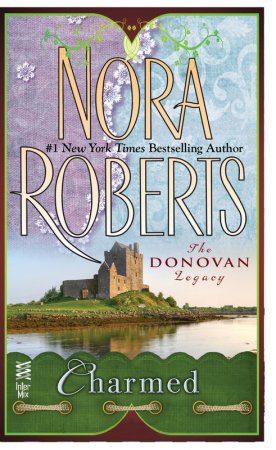 Charmed
Charmed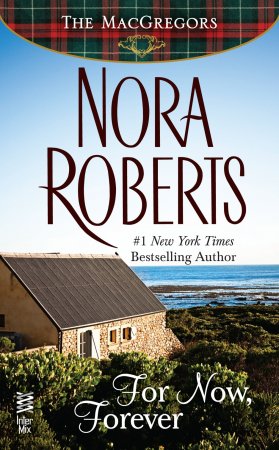 For Now, Forever
For Now, Forever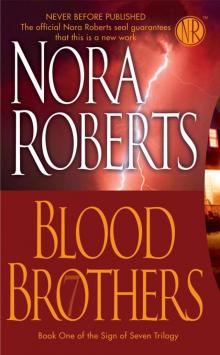 Blood Brothers
Blood Brothers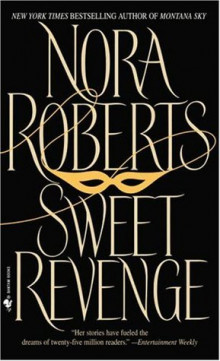 Sweet Revenge
Sweet Revenge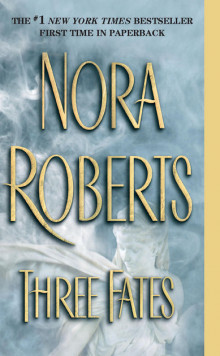 Three Fates
Three Fates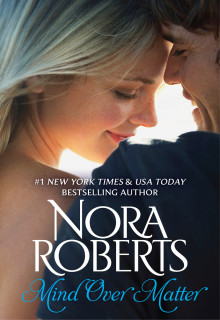 Mind Over Matter
Mind Over Matter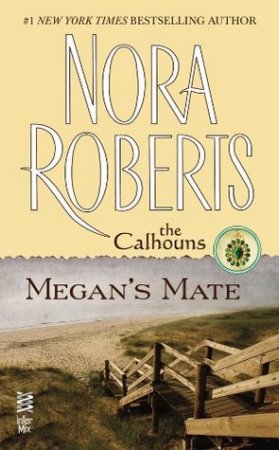 Megan's Mate
Megan's Mate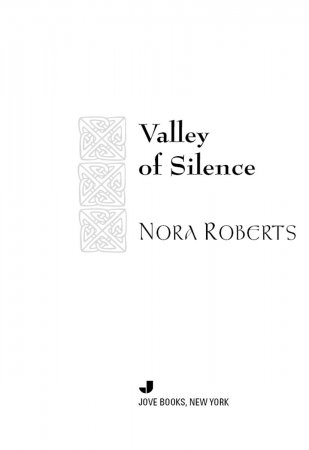 Valley of Silence
Valley of Silence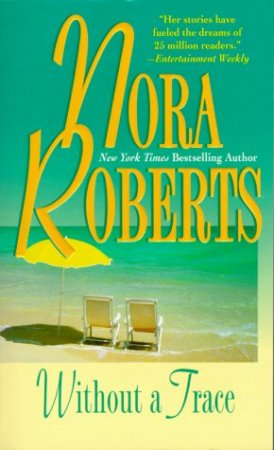 Without A Trace
Without A Trace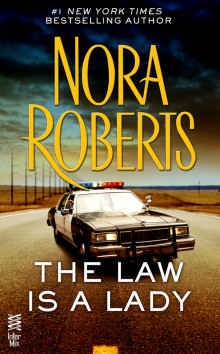 The Law is a Lady
The Law is a Lady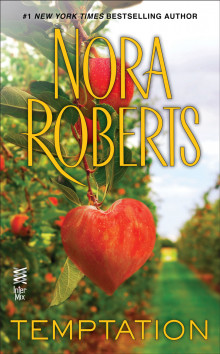 Temptation
Temptation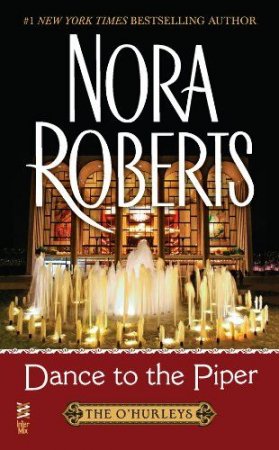 Dance to the Piper
Dance to the Piper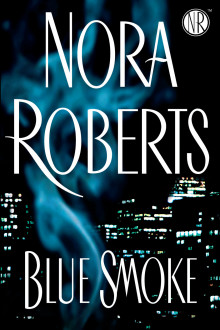 Blue Smoke
Blue Smoke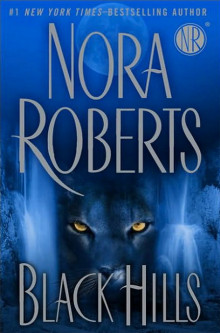 Black Hills
Black Hills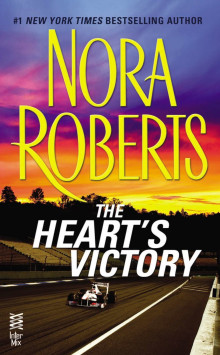 The Heart's Victory
The Heart's Victory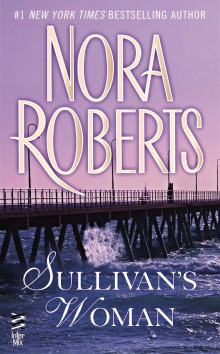 Sullivan's Woman
Sullivan's Woman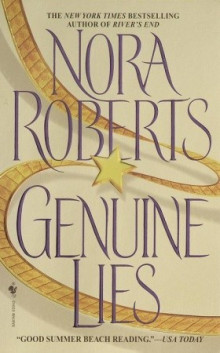 Genuine Lies
Genuine Lies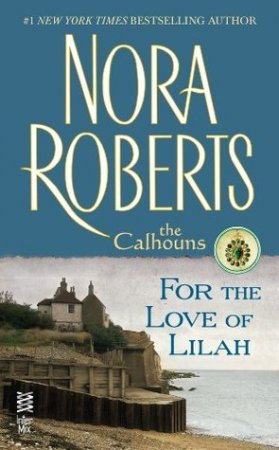 For the Love of Lilah
For the Love of Lilah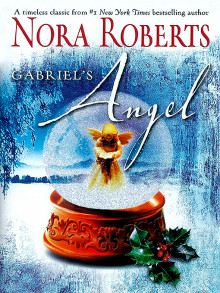 Gabriel's Angel
Gabriel's Angel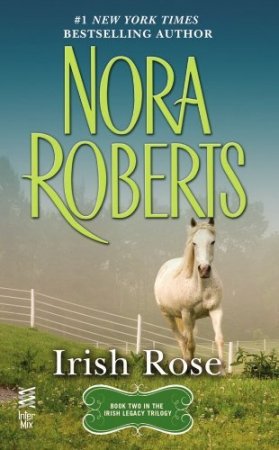 Irish Rose
Irish Rose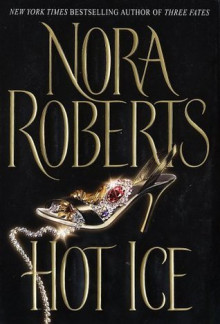 Hot Ice
Hot Ice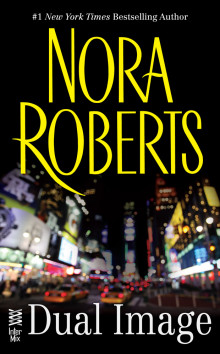 Dual Image
Dual Image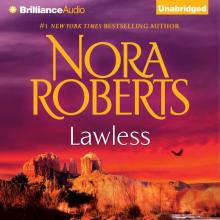 Lawless
Lawless Catch My Heart
Catch My Heart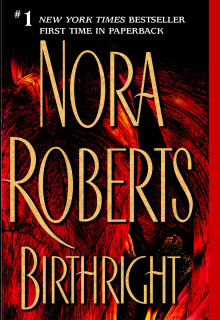 Birthright
Birthright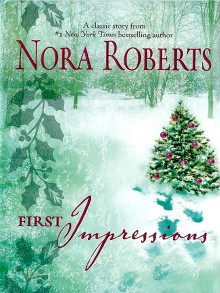 First Impressions
First Impressions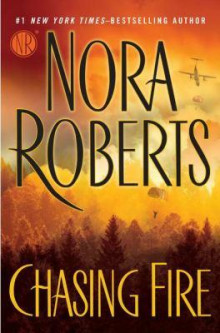 Chasing Fire
Chasing Fire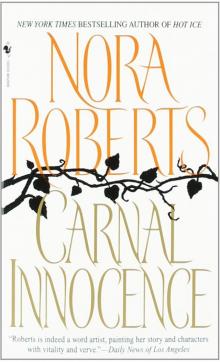 Carnal Innocence
Carnal Innocence Best Laid Plans
Best Laid Plans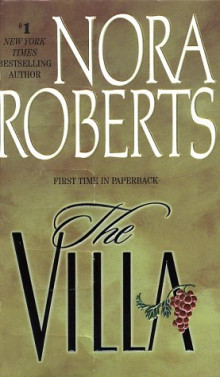 The Villa
The Villa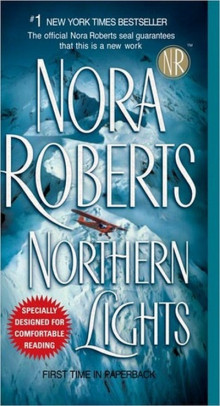 Northern Lights
Northern Lights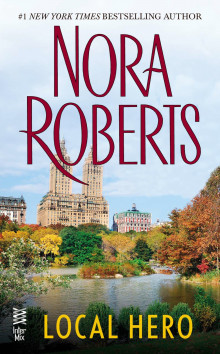 Local Hero
Local Hero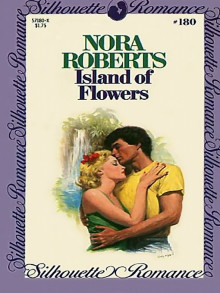 Island of Flowers
Island of Flowers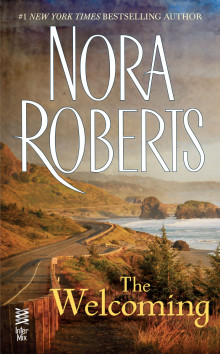 The Welcoming
The Welcoming All I Want for Christmas
All I Want for Christmas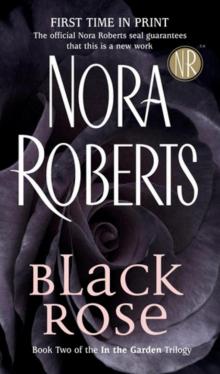 Black Rose
Black Rose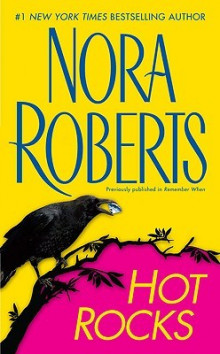 Hot Rocks
Hot Rocks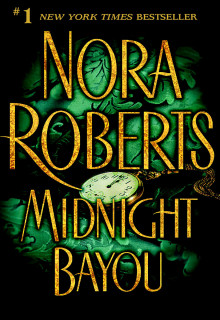 Midnight Bayou
Midnight Bayou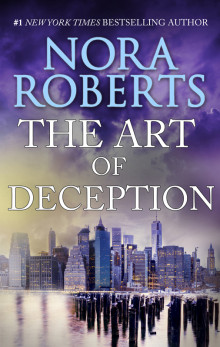 The Art of Deception
The Art of Deception From This Day
From This Day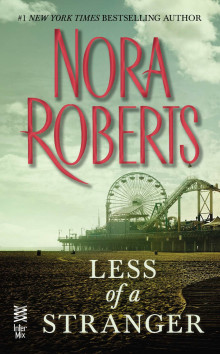 Less of a Stranger
Less of a Stranger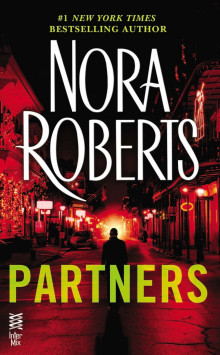 Partners
Partners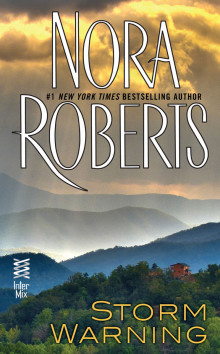 Storm Warning
Storm Warning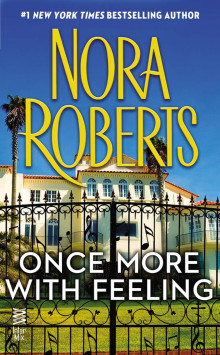 Once More With Feeling
Once More With Feeling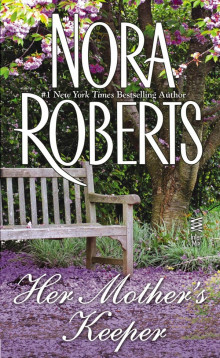 Her Mother's Keeper
Her Mother's Keeper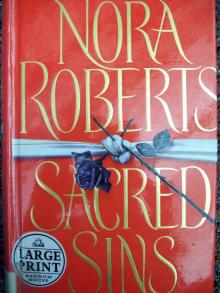 Sacred Sins
Sacred Sins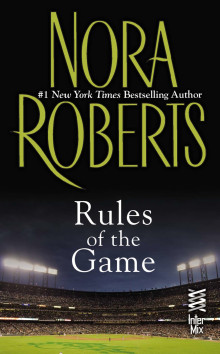 Rules of the Game
Rules of the Game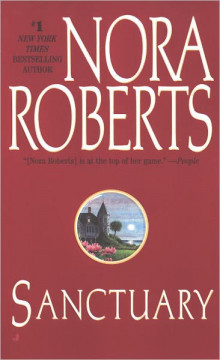 Sanctuary
Sanctuary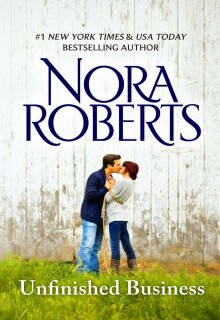 Unfinished Business
Unfinished Business Cordina's Royal Family Collection
Cordina's Royal Family Collection Dangerous Embrace
Dangerous Embrace One Summer
One Summer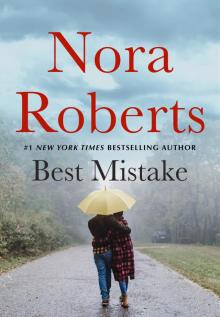 The Best Mistake
The Best Mistake Boundary Lines
Boundary Lines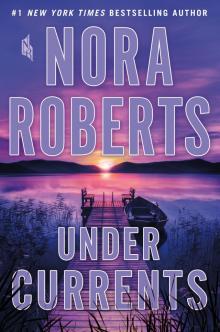 Under Currents
Under Currents The Stanislaski Series Collection, Volume 1
The Stanislaski Series Collection, Volume 1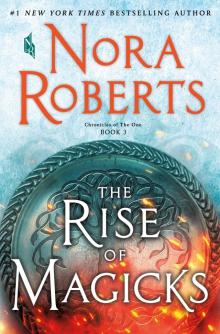 The Rise of Magicks
The Rise of Magicks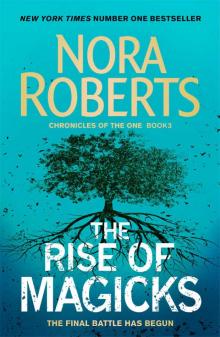 The Rise of Magicks (Chronicles of The One)
The Rise of Magicks (Chronicles of The One)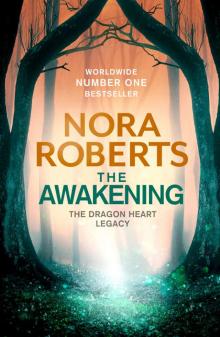 The Awakening: The Dragon Heart Legacy Book 1
The Awakening: The Dragon Heart Legacy Book 1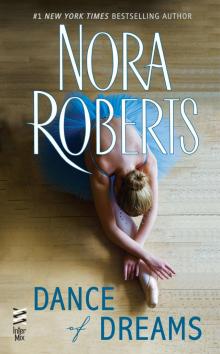 Dance of Dreams
Dance of Dreams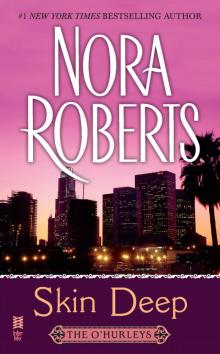 Skin Deep: The O'Hurleys
Skin Deep: The O'Hurleys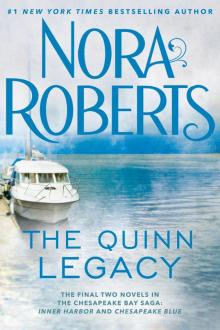 The Quinn Legacy: Inner Harbor ; Chesapeake Blue
The Quinn Legacy: Inner Harbor ; Chesapeake Blue![[Chronicles of the One 03.0] The Rise of Magicks Read online](http://i1.bookreadfree.com/11/chronicles_of_the_one_03_0_the_rise_of_magicks_preview.jpg) [Chronicles of the One 03.0] The Rise of Magicks
[Chronicles of the One 03.0] The Rise of Magicks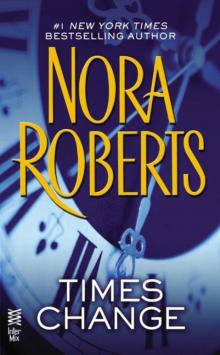 Times Change
Times Change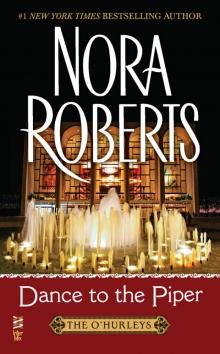 Dance to the Piper: The O'Hurleys
Dance to the Piper: The O'Hurleys Christmas In the Snow: Taming Natasha / Considering Kate
Christmas In the Snow: Taming Natasha / Considering Kate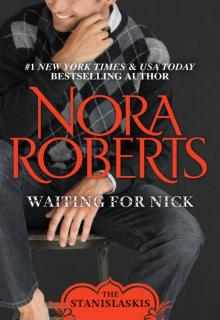 Waiting for Nick
Waiting for Nick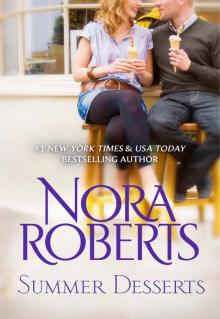 Summer Desserts
Summer Desserts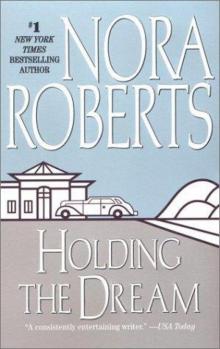 Dream 2 - Holding the Dream
Dream 2 - Holding the Dream The Novels of Nora Roberts, Volume 2
The Novels of Nora Roberts, Volume 2 In the Garden Trilogy
In the Garden Trilogy Eight Classic Nora Roberts Romantic Suspense Novels
Eight Classic Nora Roberts Romantic Suspense Novels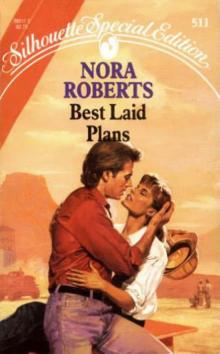 Best Laid Plans jh-2
Best Laid Plans jh-2 From the Heart
From the Heart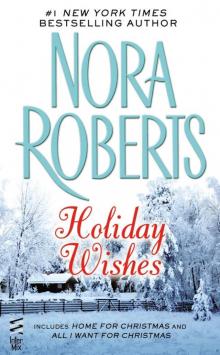 Holiday Wishes
Holiday Wishes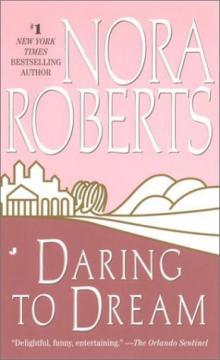 Dream 1 - Daring to Dream
Dream 1 - Daring to Dream Second Nature
Second Nature Summer Pleasures
Summer Pleasures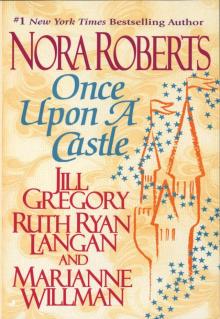 Once Upon a Castle
Once Upon a Castle Stars of Mithra Box Set: Captive StarHidden StarSecret Star
Stars of Mithra Box Set: Captive StarHidden StarSecret Star Impulse
Impulse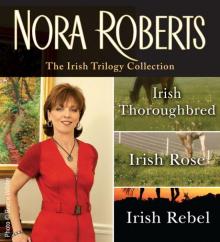 The Irish Trilogy by Nora Roberts
The Irish Trilogy by Nora Roberts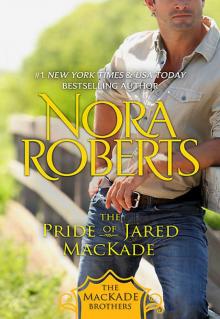 The Pride Of Jared Mackade tmb-2
The Pride Of Jared Mackade tmb-2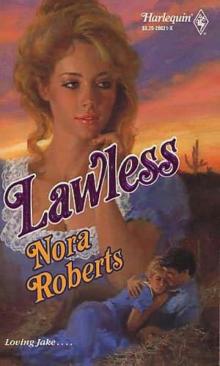 Lawless jh-3
Lawless jh-3 Taming Natasha
Taming Natasha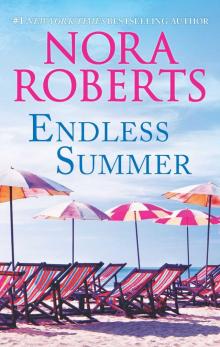 Endless Summer
Endless Summer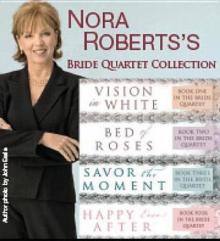 Bride Quartet Collection
Bride Quartet Collection Happy Ever After tbq-4
Happy Ever After tbq-4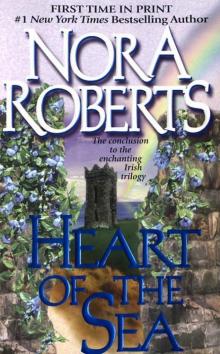 Heart Of The Sea goa-3
Heart Of The Sea goa-3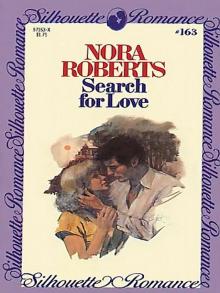 Search for Love
Search for Love Once upon a Dream
Once upon a Dream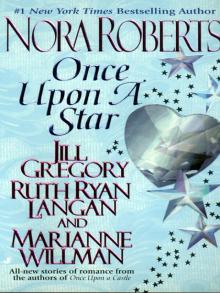 Once Upon a Star
Once Upon a Star Dream Trilogy
Dream Trilogy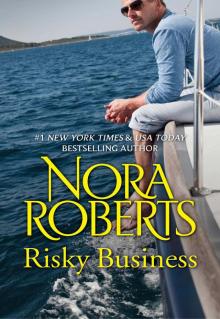 Risky Business
Risky Business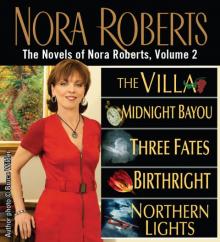 The Novels of Nora Roberts, Volume 3
The Novels of Nora Roberts, Volume 3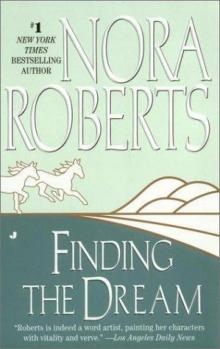 Dream 3 - Finding the Dream
Dream 3 - Finding the Dream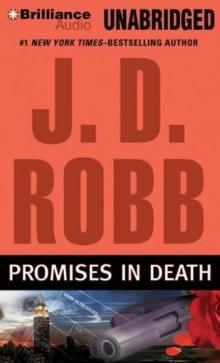 Promises in Death id-34
Promises in Death id-34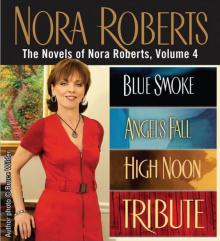 The Novels of Nora Roberts, Volume 4
The Novels of Nora Roberts, Volume 4 The Perfect Hope ib-3
The Perfect Hope ib-3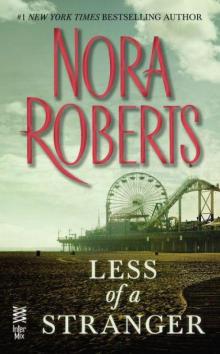 Less than a Stranger
Less than a Stranger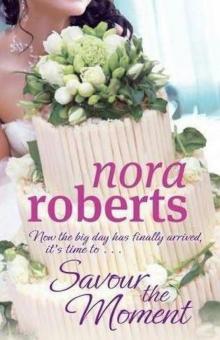 Savour the Moment: Now the Big Day Has Finally Arrived, It's Time To...
Savour the Moment: Now the Big Day Has Finally Arrived, It's Time To...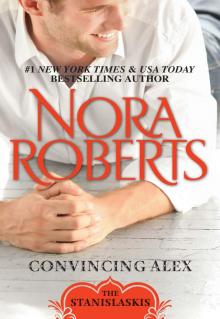 Convincing Alex
Convincing Alex Bed of Roses tbq-2
Bed of Roses tbq-2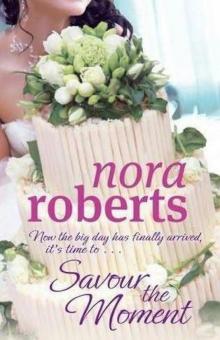 Savour the Moment tbq-3
Savour the Moment tbq-3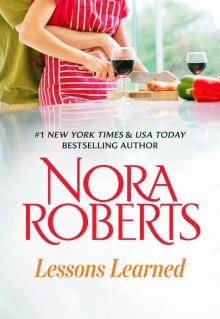 Lessons Learned
Lessons Learned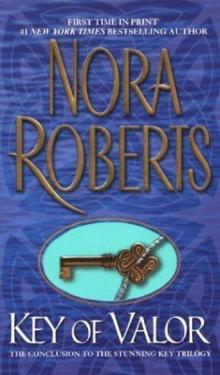 Key Of Valor k-3
Key Of Valor k-3 Red lily gt-3
Red lily gt-3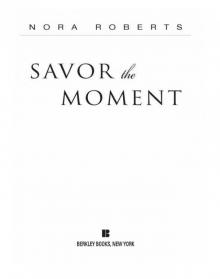 Savor the Moment
Savor the Moment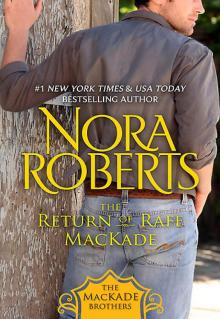 The Return Of Rafe Mackade tmb-1
The Return Of Rafe Mackade tmb-1 For The Love Of Lilah tcw-3
For The Love Of Lilah tcw-3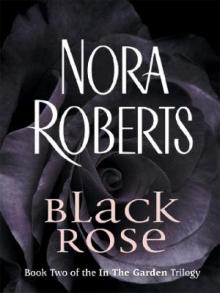 Black Rose gt-2
Black Rose gt-2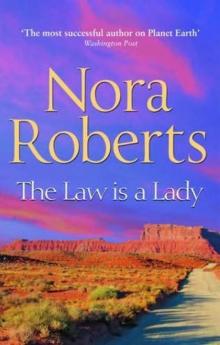 Novels: The Law is a Lady
Novels: The Law is a Lady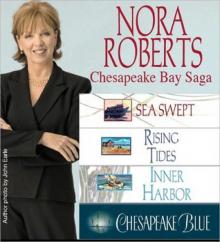 Chesapeake Bay Saga 1-4
Chesapeake Bay Saga 1-4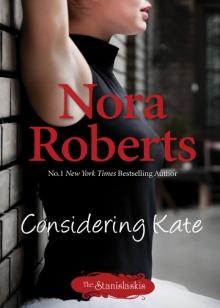 Considering Kate
Considering Kate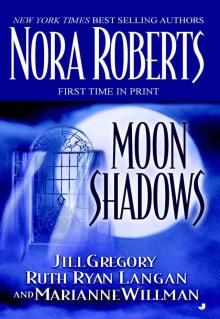 Moon Shadows
Moon Shadows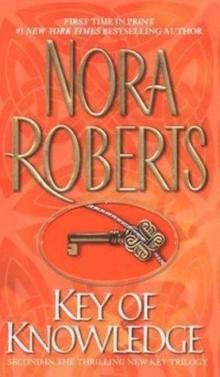 Key of Knowledge k-2
Key of Knowledge k-2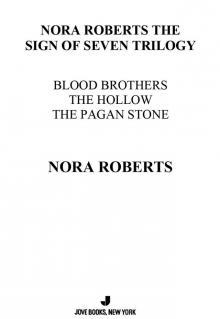 The Sign of Seven Trilogy
The Sign of Seven Trilogy Once Upon a Kiss
Once Upon a Kiss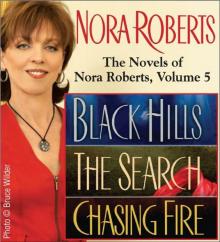 The Novels of Nora Roberts, Volume 5
The Novels of Nora Roberts, Volume 5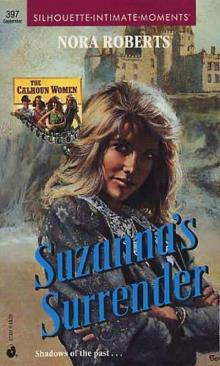 Suzanna's Surrender tcw-4
Suzanna's Surrender tcw-4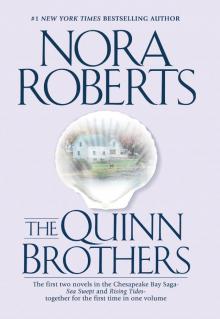 The Quinn Brothers
The Quinn Brothers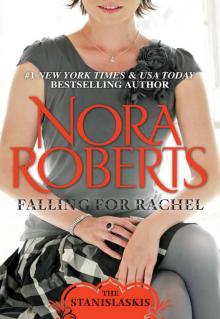 Falling for Rachel
Falling for Rachel Brazen Virtue
Brazen Virtue Time Was
Time Was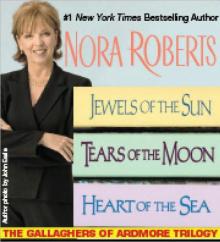 The Gallaghers of Ardmore Trilogy
The Gallaghers of Ardmore Trilogy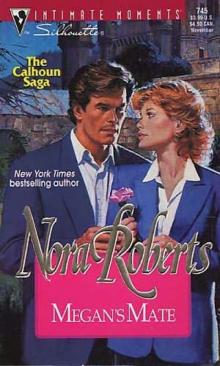 Megan's Mate tcw-5
Megan's Mate tcw-5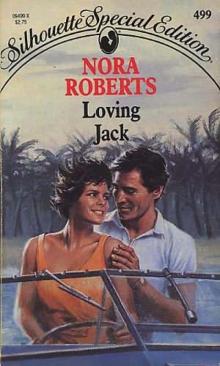 Loving Jack jh-1
Loving Jack jh-1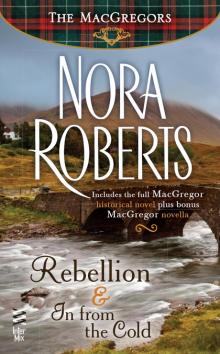 Rebellion & In From The Cold
Rebellion & In From The Cold Blue Dahlia gt-1
Blue Dahlia gt-1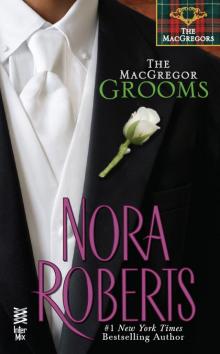 The MacGregor Grooms
The MacGregor Grooms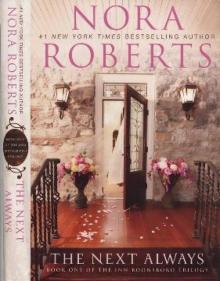 The Next Always tibt-1
The Next Always tibt-1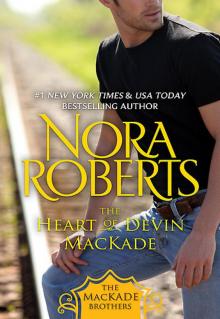 The Heart Of Devin Mackade tmb-3
The Heart Of Devin Mackade tmb-3 The Novels of Nora Roberts Volume 1
The Novels of Nora Roberts Volume 1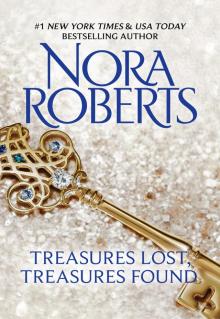 Treasures Lost, Treasures Found
Treasures Lost, Treasures Found Nora Roberts's Circle Trilogy
Nora Roberts's Circle Trilogy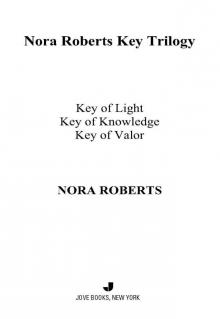 The Key Trilogy
The Key Trilogy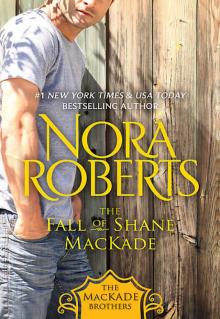 The Fall Of Shane Mackade tmb-4
The Fall Of Shane Mackade tmb-4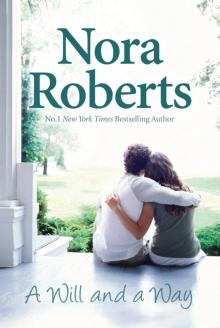 A Will And A Way
A Will And A Way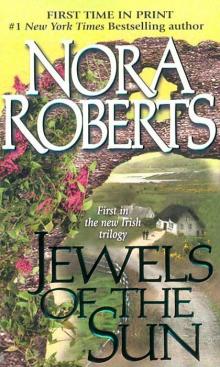 Jewels of the Sun goa-1
Jewels of the Sun goa-1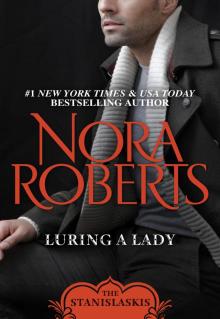 Luring a Lady
Luring a Lady